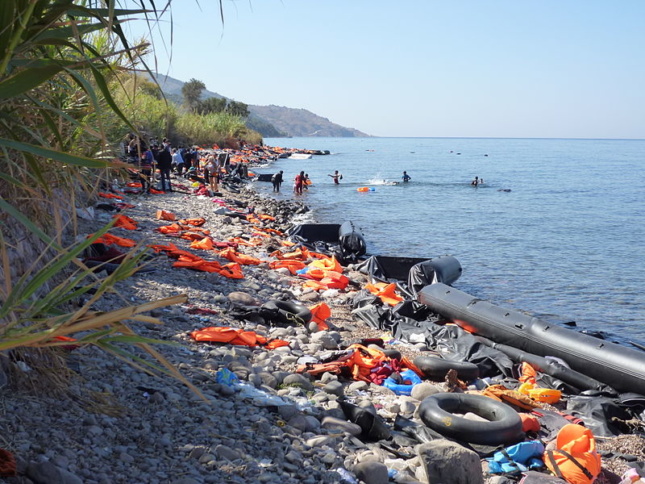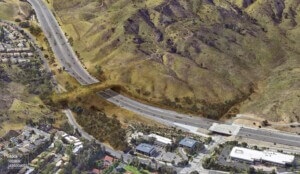The Greek government has announced plans for a floating barrier in the Aegean Sea, meant to slow the movement of asylum-seeking migrants arriving on the country’s North Aegean Islands via boat from mainland Turkey.
Envisioned as a sort of buoyant maritime version of the Trump Administration’s U.S.-Mexico border wall, the netted blockade would stretch 1.7 miles off the northern coast of Lesbos, Greece’s third-largest island and home to the notoriously ill-equipped and overcrowded Moria refugee camp. Per Reuters, the barrier could potentially extend over nine miles if the initial segment is found to be an effective deterrence tool by Greece’s Defense Ministry. Plans call for the floating wall to rise above sea level by nearly two feet and be topped with flashing lights so that it’s visible in the dark of night.
While there’s currently no clear start or completion date for the estimated $545,000 undertaking, The New York Times reports that the search for private contractors to erect the barricade is underway and a selection will be made within three months. Government officials are confident that a floating sea wall will successfully thwart refugees attempting to reach Greece’s northeastern islands, pointing specifically to a barbed wire-laden land barrier built along Greece’s northern border with Turkey in 2012 that officials believe has produced desirable results.
“In Evros, physical barriers had a relative impact in curbing flows,” Greek Defense Minister Nikolaos Panagiotopoulos explained to Skai Radio when the proposal was announced late last month. “We believe a similar result can be achieved with these floating barriers.”
Although Panagiotopoulos is confident in the plan’s efficacy, the very idea of a refugee-blocking floating fence in the Aegean Sea has been met with swift condemnation from humanitarian groups and former government officials alike, many of which have criticized the idea as being potentially dangerous and likely ineffective—after all, small vessels carrying migrants can simply navigate around the barrier.

“The idea that a fence of this length is going to work is totally stupid,” said Greece’s former Migration Minister Dimitris Vitsas. “It’s not going to stop anybody making the journey.”
“This proposal marks an alarming escalation in the Greek government’s ongoing efforts to make it as difficult as possible for asylum-seekers and refugees to arrive on its shores and will lead to more danger for those desperately seeking safety,” warned Massimo Moratti, European research director with Amnesty International, in a press statement. “The government must urgently clarify the operational details and necessary safeguards to ensure that this system does not cost further lives.”
Amnesty International notes that roughly 60,000 migrants, largely from war-torn Syria, arrived in Greece by sea in 2019, nearly double the number of arrivals in 2018. From January through October 2019, the International Organization for Migration recorded 66 deaths along maritime migration routes in the eastern Mediterranean Sea.











